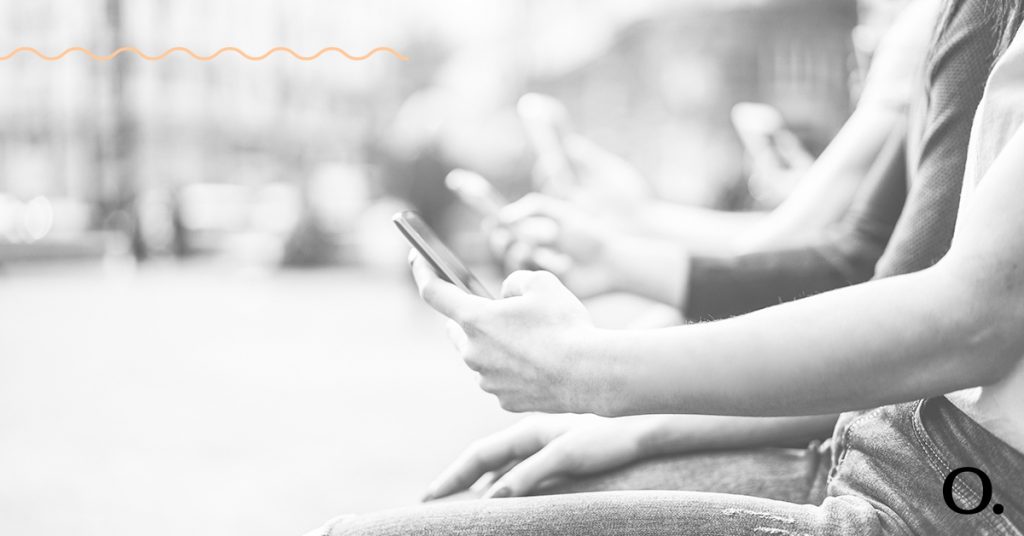It’s hard to remember a time when hours scrolling on your ‘For You’ tab on TikTok or Reels on Instagram wasn’t a distinct part of our everyday routine. But imagine being surrounded by social media your whole life and not even having the chance to grow up without it. Well, that’s exactly the reality for most of Generation Z, who have never experienced life without the constant influence of some form of social networking platform.
While the question ‘Has social media made us anti-social?’ often comes up in conversation, do we ever think to question if the apps we use to share all the details of our life have lasting effects on our overall health?
A report published by the McKinsey Health Institute found that while some aspects of Gen Z’s social media use felt negative it also aided with finding mental health support and connectivity.
The study, which involved a survey of more than 42,000 respondents in 26 countries, analysed differences and similarities across generations and countries with the hope of informing a broader dialogue around Gen Z mental health.
The data found the relationship between mental health and social media wasn’t straightforward and tended to be more complex.
Researchers found the cohort that was most likely to specify negative feelings about social media was Gen Z. Findings also indicated that they are more likely to report having poor mental health. In particular, 21% of Gen Z females were almost twice as likely to report poor mental health when compared with males, 13% of who reported poor mental health.
A high segment of Gen Z females reported poor or distorted body image and self-confidence. As social media evolves, so do the resources that come along with it, such as photo editing. It has begun to be hard to tell if photos are ‘real’ or not. Apps like FaceTune allow users to change the shape of their body/face, from sculpting a thinner jawline to digitally removing 20 kilos from their body. Furthermore, it is apparent people are more open to talking about physical procedures on social media such as plastic surgery. As a result of this, it can have negative impacts on the viewer.
The findings also reported an increase in FOMO due to social media. The ‘Fear of Missing Out’ (FOMO) is driving young people to constantly check their phones in order not to miss out on anything that is happening around them.
Although negative effects of social media were found across the generations, positive effects were even more common, with more than 50% of all groups mentioning self-expression and social connectivity. This may be attributed to access to digital wellness apps and digital mental health programs on social media.
Conduct a social media overhaul
Look at the accounts you are currently following and ask yourself why you’re following them. Does their content motivate you, or does the lifestyle they urge you to wish for more? While you can find real and raw influencers out there, especially on TikTok where authenticity is huge, people never share every aspect of their life. Comparing your life to the edited or staged version you see of someone is not healthy. Unfollow accounts that make you loathe your own life and lower your confidence levels.
Follow accounts that make you feel good
Instead of following accounts that make you feel like you’re not good enough, try following ones that you feel uplifted by. Whether they’re filled with inspirational quotes, funny memes or photos of dogs (I recommend @thedogist, @heykeegs, and @itsdougthepug), follow pages that make you happy and that you actually want to spend time on.
Set limits for app use
Did you know you can actually set limits for your screen time for certain apps? If you find yourself spending a long time on social media and it’s having negative impacts on your mental health, it might be time to set some boundaries.
For Apple users, you can complete the following steps to limit app use:
- Go to Settings > Screen Time, then turn on Screen Time if you haven’t already
- Tap App Limits, then tap Add Limit
- Select one or more app categories
- Tap Next, then set the amount of time allowed
- When you finish setting limits, tap Add
Utilise wellness apps
There are plenty of apps out there that celebrate and nurture mental wellness. A therapy app can help you deal with a wide range of mental health issues, such as depression, anxiety and PTSD.
Our favourites include:
- Calm – an app for sleep, meditation and relaxation.
- Headspace – mediation made simple
- Sleep Cycle – analyses your sleep, waking you up at the most perfect time, feeling rested!
Fill your feed with diversity
Follow a variety of different people with different lifestyles, backgrounds, and body sizes. If you’re going to follow influencers, don’t just follow models whose job it is to look good for a living, instead fill your feed with a range of aesthetics and styles.
Take time out
Take a break by putting your phone or laptop down often and stepping back into the real world. Engage in conversations over dinner with your family or turn your phone on silent the next time you go out with friends and only use it if there’s an emergency.
There’s no reason to give up on social media apps altogether, but making a few changes to the way we use them can help us stay safer online.
Has social media ever affected your health? We’d love to know what you do to ensure you have a positive experience online. Send us a DM, and let’s have a chat!


1 thought on “Is Social Media Bad for our Mental Health?”